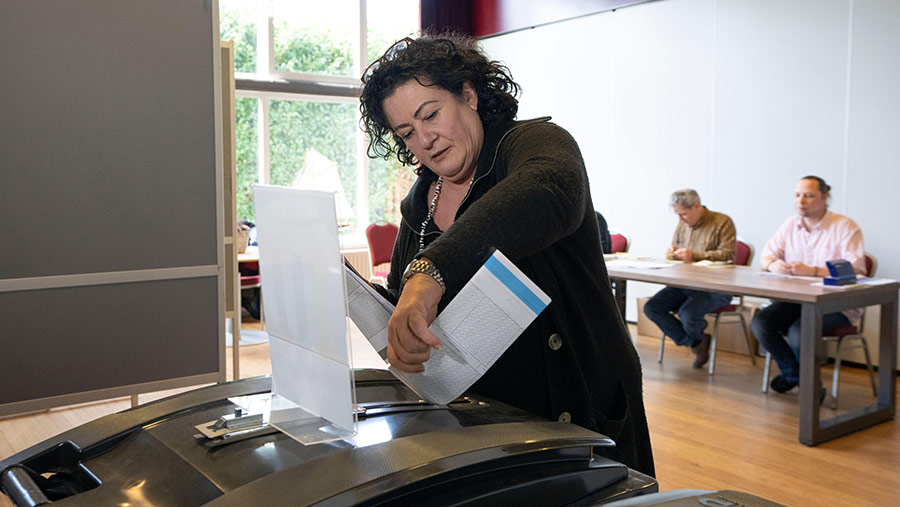Opinion: Dutch political movement echoes Crofters’ Party
 Caroline van der Plas, leader of BBB © Peter Dejong/AP Photo
Caroline van der Plas, leader of BBB © Peter Dejong/AP Photo The Farmer-Citizen Movement, or BoerBurgerBeweging (BBB) sent ripples along Dutch canals and throughout Europe when they won several seats at the March regional elections.
As a party championing farming and liberal rights against draconian government net-zero policies, they earned kudos domestically and globally.
It’s great to see, but the Dutch BBB are actually 138 years late, as we have seen this all before on our own island.
The Crofters’ Party took many by surprise in the 1885 general election by winning seats from Liberal MPs in the UK, bringing their rural- and farming-focused agenda right to Westminster’s door.
See also: Opinion – ‘Fake meat’ has no sausage or sizzle
These weren’t career politicians, they were crofters. Small-scale farmers using the systems and producing on the same land, as had been the case for centuries.
They’d been forced into action to defend the rights of crofters throughout the Highlands and Islands in the face of excessive rent increases, unfair eviction and oppression.
Across the Highlands and Hebrides in the late 1800s, crofters had been waging a war against absent landlords who would remove crofts by any means in favour of large-scale sheep operations.
This was cultural genocide, and its effects still haunt those areas today. Agricultural skill sets and knowledge of the land that had taken generations to acquire were thrown away.
Ironically, many ended up in Australia and New Zealand, where their descendants successfully compete with us today.
Devious approaches and underhand tricks from landlords provoked rent strikes and open rioting, until gunboats and a force of Royal Marines restored order.
The crofters, however, knew this battle had to be fought politically and so formed their own party.
Much like the current BBB, they were highly successful in gaining public support for their aims by illustrating their issues and the plight they faced. They were merely trying to live and work as they had always done.
These emotional issues moved voters away from their traditional party loyalties, as did their anti-establishment stance.
This echoes exactly what the BBB is doing – taking the widespread mistrust in the Dutch government and using it to their advantage.
Voters abandoned the majority party, the VVD, almost as a boycott due to their recent performance and attitudes on immigration and climate change.
Eventually, the Crofters’ Party was absorbed into the rising SNP and Labour parties as their policies started to align with the aims of the crofters. But they did not leave the stage before making their mark.
The party pressured the government on land reform and secured the creation of the Crofters Act 1886, as well as getting the government to adopt many of their other objectives.
The Act helped to stop the abuse of power by landlords and created the first Crofting Commission, a form of which still exists today.
The Dutch election on 22 November will be a test, but the BBB is riding a wave of popularity that could burst the dam in European as well as Dutch politics, as we see a populous reaction to net-zero policies on a wide scale.
I’d love to see a rural-focused party win seats and really sink its roots into a western political system.
This is the right sort of populism that brings politicians’ heads out of the clouds and back down to reality.

